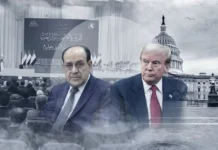Good morning ,
‘Crypto, Welcome Home’: White House Report Signals Major Shift in U.S. Policy Toward Digital Assets
Industry leaders praise Trump administration’s pro-crypto stance and SEC’s move to rethink token classification.
In a landmark move that could reshape the future of digital asset policy in the United States, the White House on Wednesday released a 168-page report outlining a comprehensive regulatory framework for crypto. The report includes key proposals covering banking access, stablecoins, taxation, illicit finance, and a federal crypto stockpile.
Treasury Secretary Scott Bessent, in prepared remarks, took direct aim at the previous administration, calling the Biden-era approach to crypto “hostile.” In a striking departure from past rhetoric, Bessent posted on social media:
“Crypto, welcome home.”
He elaborated in his speech:
“So start your companies here. Launch your protocols here. And hire your workers here. You’ll be glad you did.”
Industry Praises New White House Approach
The report’s release was met with strong approval from across the digital asset sector. Advocates hailed the move as a long-overdue acknowledgment of crypto’s economic potential.
“We commend this Administration, the Presidential Working Group, and all the agencies involved for producing a comprehensive, forward-looking report,” said Ji Hun Kim, CEO of the Crypto Council for Innovation. “It reflects a serious commitment of U.S. leadership in the digital asset space and the continued adoption of blockchain technology.”
Several leaders highlighted how this report builds on previous congressional efforts—especially the passage of the GENIUS Act, which federally regulates stablecoins and laid groundwork for broader crypto market structure legislation.
“This moment is a reminder that groundbreaking legislation like GENIUS becomes law because of advocates who demand progress,” said Mason Lynaugh, community director at Stand With Crypto. “Now, not only do we have a voice in the national conversation, but we also have momentum on our side. Let’s keep going.”
U.S. Signaling Global Crypto Leadership
Roshan Robert, CEO of OKX US, framed the report as a pivot toward practical adoption:
“From Ethereum-based treasuries to compliant stablecoins and regulated exchanges, Washington is signaling a shift toward real-world utility over ideology.”
Robert added that the United States is finally “stepping up to lead” in the digital asset space—a sentiment echoed by others who see the report as a potential turning point.
SEC to Lead Secondary Market Regulation
The report also clarifies the roles of various agencies, naming the Securities and Exchange Commission (SEC) as the “primary federal regulator of secondary digital asset markets.” On Thursday, SEC Chair Paul Atkins acted on the recommendations by launching a new agency initiative called “Project Crypto.”
Atkins said that Commissioner Hester Peirce and her task force will begin developing proposals in line with the White House’s framework. He also committed agency staff to draft new rules around crypto distributions, custody, and trading, subject to public comment.
“The biggest headline is that most tokens are not considered securities,” said Nic Puckrin, founder of Coin Bureau. “That’s a huge shift from the SEC’s previous stance.”
Regulatory Philosophy: Support Innovation, Protect Rights
Atkins emphasized a regulatory posture that distinguishes between centralized schemes and onchain software systems, including DeFi protocols. He pledged that developers and users will not be burdened by “duplicative or unnecessary regulation.”
“At DeFi Education Fund, we sincerely appreciate his acknowledgment of the American right to self-custody,” said Amanda Tuminelli, the group’s executive director. “He understands that regulating DeFi requires a nuanced approach—and that’s exactly what we need.”
A New Chapter in U.S. Crypto Policy?
This week’s announcements from both the White House and the SEC appear to mark the beginning of a major realignment in U.S. crypto regulation. Once viewed primarily through the lens of enforcement and national security, digital assets are now being positioned as strategic infrastructure—with the government encouraging builders to innovate on American soil.
While the details of future rulemaking remain to be seen, the tone has unmistakably shifted. In the words of the Treasury Secretary, crypto is finally being invited home.
@ Newshounds News™
Source: The Block
~~~~~~~~~
Powell Blames Trump: Interest Rates Frozen by His Tariff Policy
Federal Reserve Chairman Jerome Powell made headlines this week by placing responsibility for stalled rate cuts squarely on the shoulders of President Donald Trump, whose tariff policies are injecting instability into the global economy. While markets were bracing for a policy pivot in 2025, Powell made clear that any such move remains on hold — not due to inflation, but due to Trump’s economic tactics.
“I think that’s true,” Powell stated bluntly when asked whether interest rates would already be lower without Trump’s recent trade measures.
That single sentence landed like a thunderclap across Wall Street. The implication: Trump’s aggressive tariff strategy is forcing the Fed into a holding pattern. In the Fed Chair’s words and tone, a deeper confrontation is brewing — not just between economics and politics, but between institutional independence and presidential volatility.
Trump’s Tariff Gambit Blocks Fed Action
Powell’s remarks confirm what investors have suspected: the Fed is delaying rate cuts due to the uncertainty created by the White House. While inflation has eased and the broader economy shows signs of fatigue, the central bank refuses to budge, citing Trump’s aggressive trade posture with key global partners.
“They’ve made abrupt decisions,” Powell alluded, adding that these create “a climate of instability.”
The renewed economic nationalism — dubbed by some as the Return of Trumpian Tariffism — carries high costs. From Beijing to Brussels, retaliatory whispers are already echoing across trade ministries, and central banks globally are watching to see whether the U.S. Fed can maintain autonomy under executive pressure.
Powell vs. Trump: Personal History, Policy Collision
The drama isn’t just institutional — it’s personal. Trump appointed Powell in 2019, but their relationship quickly soured. Trump has since publicly criticized Powell, most recently calling him a “stubborn mule” and “a stupid person.”
Despite the attacks, Powell remains publicly composed. But make no mistake: the Fed Chair is quietly reasserting his role as guardian of monetary stability, refusing to be rushed into rate cuts that could unleash unintended consequences in a politically charged environment.
Crypto in the Crossfire: Bitcoin and Stablecoins React
The standoff has spilled into the digital asset space. Bitcoin fell 1.3% on Tuesday, as Powell’s comments — and Trump’s unpredictability — weighed on market sentiment.
“As long as rates remain high, liquidity becomes scarcer, and cryptocurrencies suffer,” analysts warn.
In a telling shift, Powell also acknowledged that the Fed is supporting stablecoin legislation, suggesting that while it holds the line on rates, it is not opposed to financial innovation. He noted a “significant change in tone” on Wall Street toward crypto, indicating the sector’s growing legitimacy in monetary policy discussions.
Balancing Act: The Fed’s Independence Under Fire
Trump’s tariff policies aren’t just economic tools — they’re electoral levers. His administration is using trade threats to rally domestic support, even at the cost of global stability. The Fed, in contrast, is forced into cautious restraint, maintaining high rates not because it wants to, but because it must wait for clarity.
“This isn’t just about rates,” one economist noted. “It’s about whether U.S. institutions can withstand politicization during an election year.”
As Powell plays for time and Trump reshapes trade policy with a campaign lens, the fate of interest rates — and by extension, the economy and digital asset markets — remains tethered to political turbulence.
Outlook: One Name, One Variable
Whether in bond markets or Bitcoin forums, one name dominates every discussion: Trump. His influence on trade, rates, and digital asset regulation has become the single most important variable in economic forecasting.
“For Trump, Bitcoin doesn’t compete with the dollar — it becomes a safety valve,” one strategist observed.
This is no longer a theoretical debate. It is a live test of how America’s monetary framework navigates the crosswinds of politics, innovation, and global realignment. The coming months will decide whether the Fed can hold its ground — or whether the Trump doctrine forces a structural shift in U.S. monetary independence.
@ Newshounds News™
Source: Cointribune
~~~~~~~~~
Seeds of Wisdom Team RV Currency Facts Youtube and Rumble
Newshound’s News Telegram Room Link
Follow the Roadmap
Follow the Timeline
Seeds of Wisdom Team™ Website






